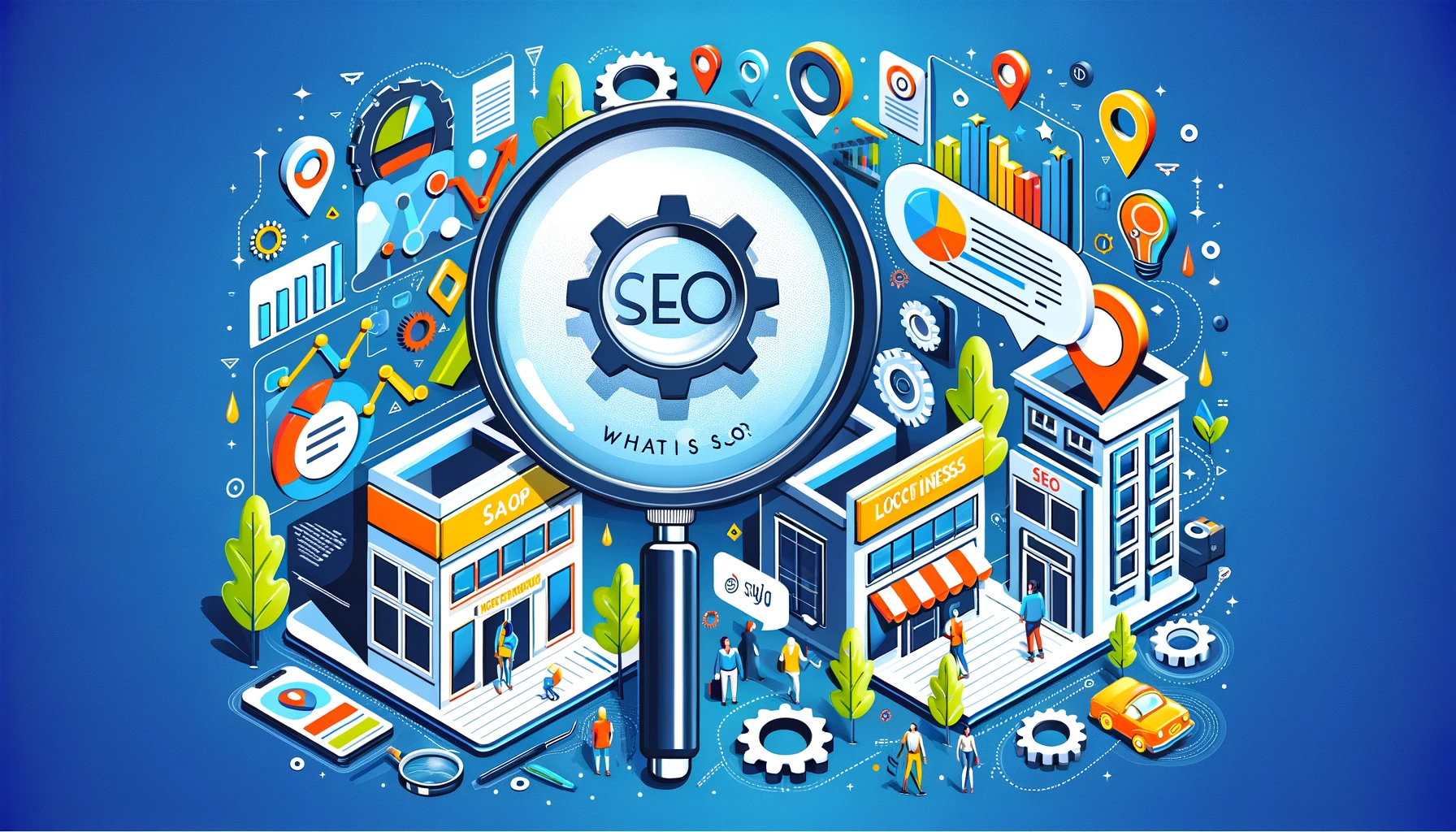Establishing a robust online presence is a necessity for businesses, especially at the local level. With the majority of consumers using online searches to find local products and services, being visible on search engines like Google is more crucial than ever. This is where Search Engine Optimization, or SEO, becomes an invaluable tool for local businesses. SEO is the art and science of enhancing your website to improve its visibility in search engine results, connecting you more effectively with your target audience.
But how does SEO differ from other digital marketing strategies like Google AdWords, and why is it particularly important for local businesses? Furthermore, what role does optimised content play in this equation? This blog post aims to demystify SEO, highlight its critical importance for local businesses, and explore how it can work in tandem with strategies like Google AdWords to create a comprehensive digital marketing plan. Whether you’re a small shop owner or a growing local enterprise, understanding the power of SEO is the first step in transforming your digital footprint and boosting your business.
Understanding SEO
SEO, or Search Engine Optimisation, is a pivotal strategy in the digital marketing toolbox, essential for enhancing the online visibility of businesses. At its core, SEO is about making your website more appealing to search engines like Google, Bing, and Yahoo. This appeal is not just about the aesthetics of your website but involves a series of optimisations that make your site both findable and favourable in the eyes of search engine algorithms.
How SEO Works
SEO operates on the principle of optimising your website to align with the criteria search engines use to rank pages. When a user enters a query, search engines scour the web to find the most relevant and authoritative pages. Factors influencing this search include the relevance of content, the user experience provided by the website, and the site’s overall credibility, which is often gauged by the number and quality of inbound links from other sites.
Key Components of SEO
- Keywords: Identifying and incorporating the right keywords – the terms and phrases potential customers use to search for products or services online – is fundamental to effective SEO.
- Content Quality: High-quality, relevant content is vital. Search engines prioritise content that offers value to users, answering their questions and providing insightful information.
- On-Page SEO: This encompasses all the measures taken directly within your website to improve its position in search rankings. It includes optimising your content, meta descriptions, title tags, and images.
- Off-Page SEO: This refers to actions taken outside of your website to impact your rankings within search engine results pages. The most significant off-page SEO factor is the creation and nurturing of backlinks.
- Technical SEO: This deals with the technical aspects of your website that affect its rankings, such as site speed, mobile responsiveness, structured data, and indexability.
Each of these components works in unison to enhance your website’s search engine rankings, driving more traffic and, in turn, conversions. It’s a complex but rewarding strategy that can yield significant long-term benefits for local businesses seeking to establish a strong digital footprint.
By understanding and implementing effective SEO practices, local businesses can significantly improve their online visibility, ensuring that when potential customers are searching for products or services they offer, their website appears prominently in the search results.
Implementing SEO in Your Local Business Strategy
Once the importance and mechanics of SEO are understood, the next step is integrating it into your local business strategy. This process involves several stages, from initial setup to ongoing maintenance, ensuring that your SEO efforts are well-aligned with your business objectives and consistently yield positive results.
Initial Steps for SEO Implementation:
- SEO Audit: Begin with an SEO audit of your current website. This audit will identify areas of improvement, such as broken links, outdated content, or poor mobile responsiveness.
- Local Keyword Research: Conduct thorough research to identify keywords that are relevant to your local business and audience. These keywords should reflect what your potential customers are searching for in your locality.
- Optimising for Local Search: Ensure that your business is listed in local directories and on Google My Business. Consistency in your business’s name, address, and phone number (NAP) across all listings is crucial.
- On-Page Optimisation: Update your website’s content and metadata with the selected local keywords. Ensure that each page is optimised for both search engines and users.
- Creating Local Content: Develop content that resonates with your local audience. This could include blog posts about local events, news, or issues relevant to your industry.
Ongoing SEO Efforts:
- Regular Content Updates: Keep your website dynamic and engaging by regularly updating your content. This could involve adding new blog posts, updating existing pages, or creating new sections on your website.
- Monitoring SEO Performance: Use tools like Google Analytics to track your website’s performance. Pay attention to metrics like organic traffic, bounce rate, and conversion rate to gauge the effectiveness of your SEO strategy.
- Adapting to Changes: SEO is not a set-and-forget strategy. Search engines frequently update their algorithms, and it’s important to stay informed and adapt your strategies accordingly.
Seamless Integration with Other Services:
- Aligning with AdWords and Optimised Content: For a holistic digital marketing strategy, integrate your SEO efforts with Google AdWords campaigns and ensure your content is optimised not just for search engines, but also for user engagement and conversions.
Implementing SEO into your local business strategy may seem daunting at first, but with a structured approach and ongoing effort, it can significantly enhance your online visibility and drive meaningful results. Remember, SEO is a long-term investment, and the fruits of your labour will grow over time, contributing to the sustainable growth of your business.
Conclusion
SEO is an indispensable tool for local businesses in today’s digital landscape. Its ability to enhance online visibility, drive targeted traffic, and establish a brand as an authority in its local area makes it a pivotal component of any successful digital marketing strategy. The integration of SEO with Google AdWords and optimised content creation further amplifies its effectiveness, ensuring a comprehensive approach to online marketing.
However, the world of SEO and digital marketing can be complex and ever-evolving, which is where professional guidance becomes invaluable. Whether you’re just starting with SEO or looking to enhance your existing efforts, my services are designed to navigate the intricacies of SEO, AdWords, and content optimisation. I offer tailored solutions that align with your unique business goals and the specific needs of your local market.
From the initial consultation, keyword research, and website optimisation to the creation of engaging content and ongoing performance monitoring, I provide an all-encompassing service to ensure your business not only achieves but also maintains a strong online presence. My expertise in seamlessly integrating these strategies allows us to offer a holistic digital marketing solution that drives results and fosters business growth.
Embarking on the SEO journey can transform your business, and I am here to guide you every step of the way. Let us help you unlock the full potential of your online presence and take your local business to new heights.









